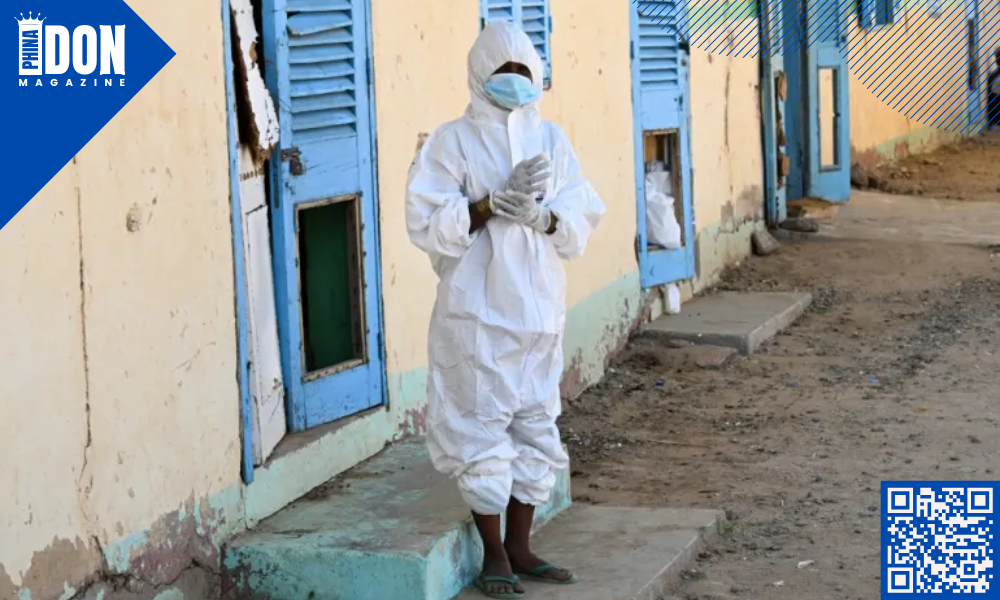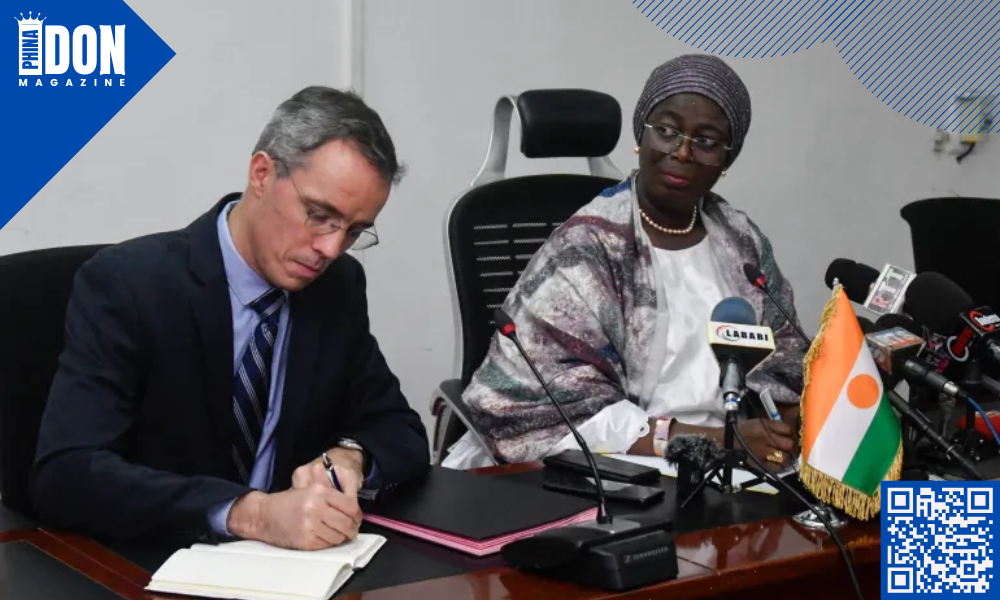Foreign
Cholera Outbreak in Khartoum: A Public Health Crisis.

A severe cholera outbreak is currently ravaging Khartoum, Sudan, resulting in a significant loss of life and further exacerbating the already dire humanitarian situation in the war-torn region. Local health authorities report at least 70 fatalities within a 48-hour period, highlighting the rapid and devastating spread of the disease.
The Khartoum state health ministry reported alarming figures of 942 new infections and 25 deaths on one day, preceded by 1,177 cases and 45 deaths the day before. The epicenter of the outbreak is Khartoum, a city grappling with the profound consequences of over two years of conflict between the Sudanese army and the Rapid Support Forces (RSF).
The ongoing conflict has crippled essential infrastructure, including access to clean water and electricity, which was further compromised by recent drone attacks attributed to the RSF. The already fragile health and sanitation systems are now on the verge of collapse, with reports indicating that approximately 90 percent of hospitals in critical war zones are non-operational.
According to the federal health ministry, 172 cholera-related deaths were recorded in the week leading up to Tuesday, with Khartoum state accounting for 90 percent of these fatalities. Aid workers on the ground emphasize that the scale of the outbreak is directly linked to the near-total breakdown of healthcare services.
The International Rescue Committee’s Sudan Country Director, Eatizaz Yousif, warns that “Sudan is on the brink of a full-scale public health disaster,” citing the confluence of conflict, displacement, destroyed infrastructure, and lack of clean water as primary drivers of the resurgence of cholera and other deadly diseases.
Since August 2024, Sudan has documented over 65,000 suspected cholera cases and at least 1,700 deaths across 12 of its 18 states. Within Khartoum alone, there have been 7,700 cases and 185 deaths, including over 1,000 infections among children under five.
The situation is expected to worsen with the onset of the rainy season, which will likely impede humanitarian access further. Aid organizations are urgently calling for immediate action to prevent a further escalation of the death toll.
UNICEF estimates that more than one million children in cholera-affected areas of Khartoum are at risk. Sheldon Yett, UNICEF’s representative in Sudan, emphasized the urgency of the situation, stating, “We are racing against time… to provide basic healthcare, clean water and good nutrition. Each day, more children are exposed to this double threat of cholera and malnutrition.”
The conflict, now entering its third year, has already resulted in tens of thousands of deaths, the displacement of 13 million people, and the creation of the world’s largest displacement and hunger crisis. The cholera outbreak serves as a stark reminder of the devastating consequences of prolonged conflict on public health and the urgent need for comprehensive humanitarian intervention.
Foreign
UK Deploys Military Assets to Middle East Amidst Escalating Iran-Israel Conflict.

In response to the escalating conflict between Iran and Israel, the United Kingdom is deploying fighter jets and other military assets to the Middle East. Prime Minister Keir Starmer announced the deployment, stating it is for “contingency support.”
The Prime Minister has engaged in discussions with both US President Donald Trump and Israeli Prime Minister Benjamin Netanyahu, emphasizing the need for de-escalation. Foreign Secretary David Lammy has also communicated with Iranian officials, urging restraint and emphasizing the importance of protecting civilians.
The UK’s actions reflect a commitment to regional stability and a concerted effort to prevent further escalation of the conflict. Ongoing discussions with allies aim to de-escalate the situation and promote a peaceful resolution.
Foreign
A person who attacked and killed a Nigerian schoolboy with a sword in the UK has been sentenced to life in prison.

Marcus Monzo, a 37-year-old of Spanish-Brazilian descent, has been sentenced to life imprisonment with a minimum term of 40 years for the murder of 14-year-old Daniel Anjorin in Hainault, northeast London. The sentencing follows Monzo’s conviction for the unprovoked and brutal attack on Daniel, as well as attacks on other members of the public and police officers, in April of last year.
The court heard how Monzo, under the influence of cannabis-induced psychosis, initiated a violent rampage, culminating in the near-decapitation of Daniel Anjorin as the young boy walked to school. Judge Joel Bennathan strongly condemned Monzo’s actions, acknowledging the profound grief inflicted upon Daniel’s family.
Judge Bennathan also commended the bravery of the police officers involved, highlighting their courage in confronting and disarming Monzo, thereby protecting the public. Monzo’s sentence reflects the severity of his crimes and the devastating impact on the victims and the community.
Foreign
Niger to Nationalize Uranium Mine Amidst Shifting Alliances.

Niger has announced plans to nationalize the Somair uranium mine, currently operated by French nuclear firm Orano. This decision marks a further departure from France, Niger’s former colonial power, and a potential realignment with Russia. The military government, in power since a 2023 coup, accuses Orano of unfairly benefiting from the mine’s output since its launch in 1971. Orano, which holds a 63% stake in Somair, disputes the allegations and has threatened legal action, citing a “systematic policy of stripping mining assets.” This move follows Niger’s earlier removal of Orano’s operational control over key mines in the country. The nationalization reflects a broader trend in West Africa, with Mali and Burkina Faso also pursuing similar policies under military rule. The situation is further complicated by existing arbitration processes between Orano and Niger, including a recent lawsuit filed by Orano.








